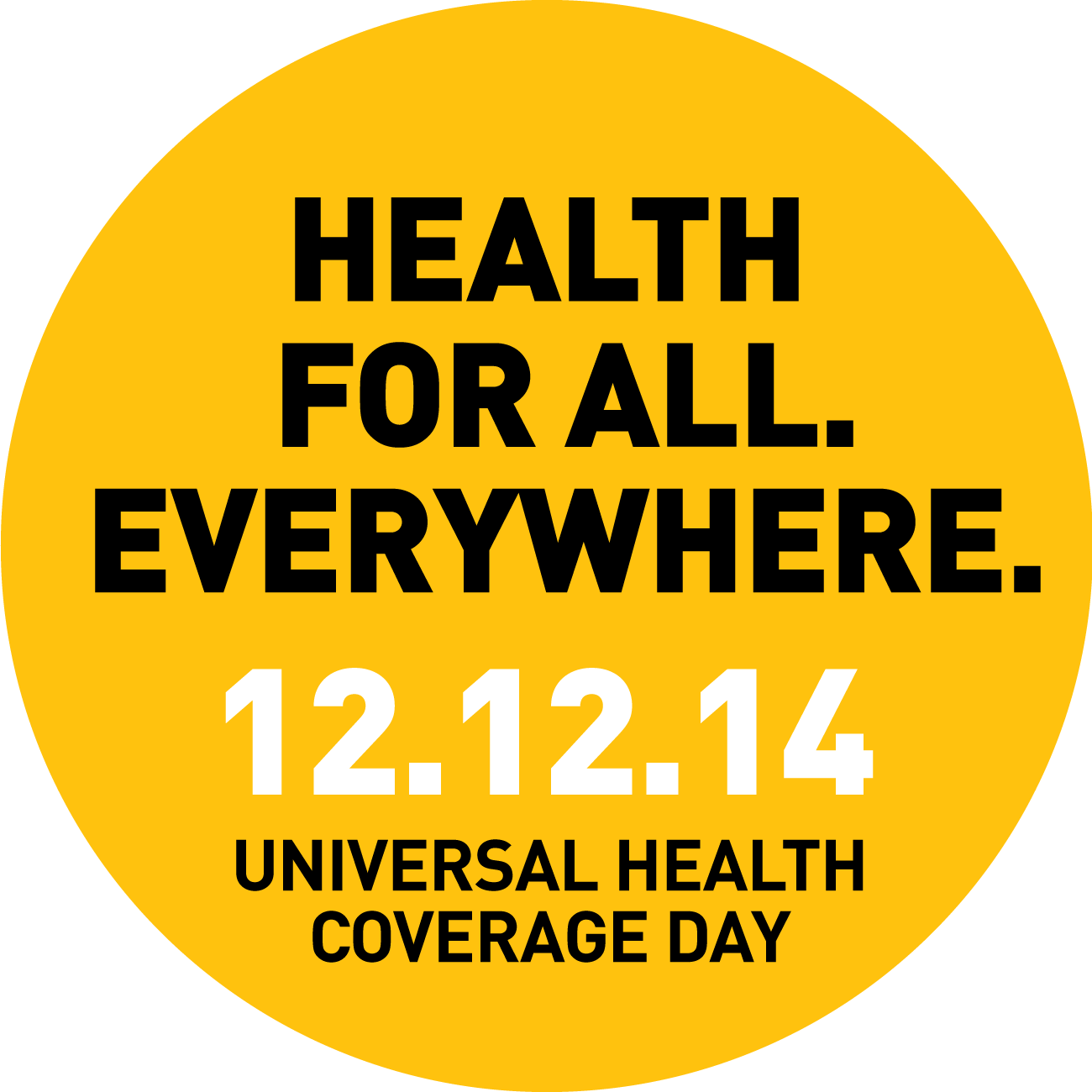 |
Dec 12, 2014 marks the world’s first Universal Health Coverage (UHC) Day. Defined in the World Health Report 2010, UHC means that all people who need quality, essential health services (prevention, promotion, treatment, rehabilitation, and palliation) receive them without enduring financial hardship…Read More |
Dec 12, 2014 marks the world’s first Universal Health Coverage (UHC) Day. Defined in the World Health Report 2010, UHC means that all people who need quality, essential health services (prevention, promotion, treatment, rehabilitation, and palliation) receive them without enduring financial hardship. UHC also means different things to different people. Vivian Lin, health systems director (WHO regional office for the Western Pacific), told The Lancet, “some define UHC as a journey or an aspiration but it is actually a strategy to get to equitable and sustainable outcomes”.UHC is indeed considered one of the key components of the Sustainable Development Goals (SDGs) to be finalised in September, 2015. The SDG Open Working Group proposal target 3 is to ensure healthy lives and promote wellbeing for all people at all ages. Arguably, healthy populations are the basic engine to reach sustainable development, and health contributes to all 17 SDG targets. Evidence to measure specific health effects is, however, ill-defined—eg, the relationship between health and marine resources or urbanisation. A Lancet Commission on planetary health will report on these themes in 2015.
Flexibility in being guided but not governed by the SDGs is therefore crucial. Putting people at the centre of UHC plans post-2015—in goals and in process—is a broadly acceptable approach to address the unfinished Millennium Development goals (MDGs), and to navigate health for the SDG era. In this context, content in this issue is dedicated to UHC, and The Lancet offers three questions for consideration.
First, who has the right to demand health? We believe the answer is everyone. UHC is within the mandate of the right to health rooted in the International Covenant on Economic, Social, and Cultural Rights. Non-governmental organisations (NGOs) are concerned that current SDG discussion around UHC is less around rights of people and more about the opportunity to open national health markets to international corporations. UHC national plans must have an accountability mechanism from the outset to ensure that governments and providers (private sector included) deliver services fairly. In a Health Policy paper in today’s issue, Robert Marten and colleagues assess progress made towards UHC in Brazil, Russia, India, China, and South Africa (BRICS). The authors report on differing approaches but similar challenges. Brazil and South Africa formally established health as a constitutional right. In Brazil, services delivered by a combination of public and private providers are free at the point of delivery, with community participation in the decentralised system.
 Second, what about quality of care? Financial risk protection alone is not enough. Early national discussion on quality, approachable compassionate care, cost of services, and user friendliness are crucial—without which UHC is meaningless. Lin says, “it is pointless to have 100% coverage if people die in hospital due to poor quality care, but quality tends to superficially translate to nice facilities rather than the conventional definition of overuse, underuse, and misuse”. Patient experience is a crucial component in quality evaluation. In a Seminar, Hugh Taylor and colleagues summarise interventions to improve the quality of care for trachoma patients. A Lancet Commission on global surgery in 2015 will also contribute to the health quality debate.
Second, what about quality of care? Financial risk protection alone is not enough. Early national discussion on quality, approachable compassionate care, cost of services, and user friendliness are crucial—without which UHC is meaningless. Lin says, “it is pointless to have 100% coverage if people die in hospital due to poor quality care, but quality tends to superficially translate to nice facilities rather than the conventional definition of overuse, underuse, and misuse”. Patient experience is a crucial component in quality evaluation. In a Seminar, Hugh Taylor and colleagues summarise interventions to improve the quality of care for trachoma patients. A Lancet Commission on global surgery in 2015 will also contribute to the health quality debate.
Finally, how can we progress towards equity and include the most vulnerable populations? Equity must underpin national health and development planning to address the unfinished MDGs and to make the benefits of sustainability equitably distributed. Profiled in today’s issue, David Evans describes UHC as part of the “ongoing momentum for equity”. MDGs must not become, as some NGOs warn, the great disappearing act of the post-2015 era. Humanitarian crises, such as war, outbreak, or natural disaster, are also notably absent from current SDG discussion. The ongoing Ebola outbreak and the weaknesses it has exposed in local health systems is illustrated by Alexandre Delamou and colleagues in a Correspondence calling for more attention to reproductive health. Yet beyond Ebola, there are simply so many conflicts and displaced populations without whose inclusion the notion of UHC is a moot point.
UHC beyond 2015 must start and end with people. Listening to different experiences with illness and specific needs in all contexts, learning from other countries—not only those who have excellent services and 100% coverage, but also from national programmes that have given users of health services a role in accountability—will mean that strong responsive systems can be built. Health can then be claimed as the universal right that post-2015 generations can fully deliver on.
Source: thelancet.com
Dec 12, 2014 marks the world’s first Universal Health Coverage (UHC) Day. Defined in the World Health Report 2010, UHC means that all people who need quality, essential health services (prevention, promotion, treatment, rehabilitation, and palliation) receive them without enduring financial hardship
